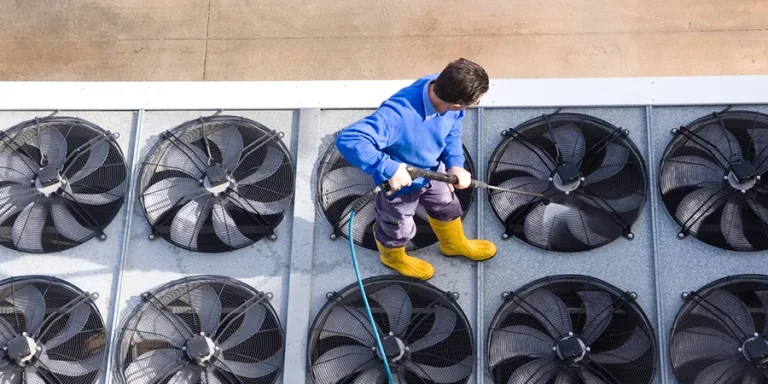Industrial pressure washers are the ultimate solution for tough cleaning tasks, delivering unmatched power and efficiency. These robust machines are essential in various industries, from manufacturing to agriculture. Understanding their mechanics, proper usage, and costs can significantly enhance operational productivity. In this guide, we delve into everything you need to know about industrial pressure washers.
Table of Contents:
1. What is an industrial pressure washer?
2. How do industrial pressure washers work?
3. How to use an industrial pressure washer
4. How much does an industrial pressure washer cost?
5. Top industrial pressure washers on the market
What is an industrial pressure washer?
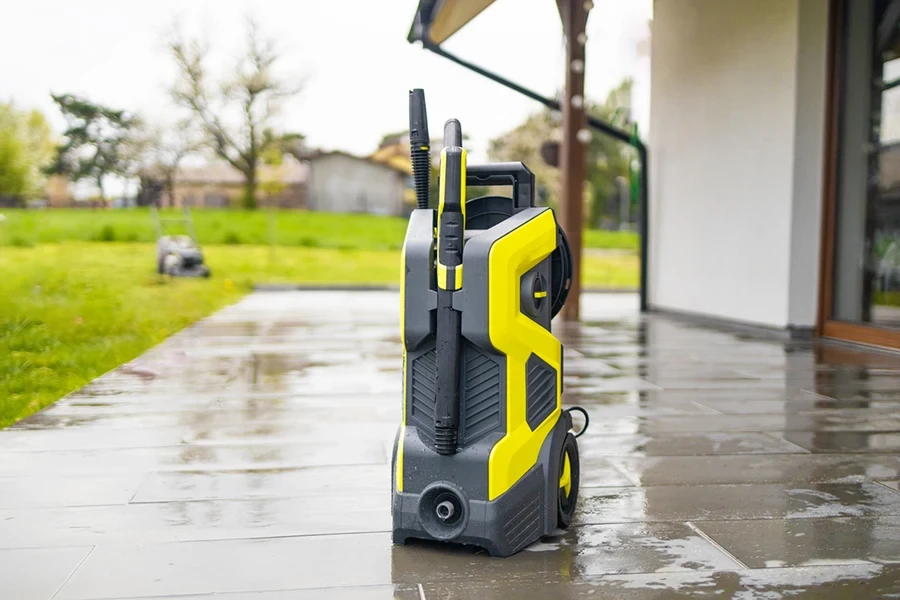
Industrial pressure washers are high-powered cleaning machines designed for heavy-duty tasks. They are equipped with powerful engines and pumps that generate high-pressure water streams, effectively removing dirt, grime, and contaminants from various surfaces. These machines are used in industries such as construction, automotive, food processing, and agriculture, where cleanliness and maintenance are crucial.
The design of industrial pressure washers includes several key components: a motor or engine, a water pump, high-pressure hoses, and specialized nozzles. The motors can be powered by electricity, gasoline, or diesel, depending on the application and availability of power sources. The water pump, driven by the motor, pressurizes the water and directs it through the hose and nozzle. The nozzles can be adjusted or replaced to provide different spray patterns and pressure levels, enhancing the machine’s versatility.
One of the ultimate benefits of industrial pressure washers is their ability to save time and labor. Traditional cleaning methods, such as scrubbing and washing by hand, are labor-intensive and often less effective. Industrial pressure washers, on the other hand, can quickly clean large areas with minimal effort, reducing downtime and improving overall efficiency. Their high-pressure water streams can also reach difficult-to-access areas, ensuring a thorough clean.
How do industrial pressure washers work?
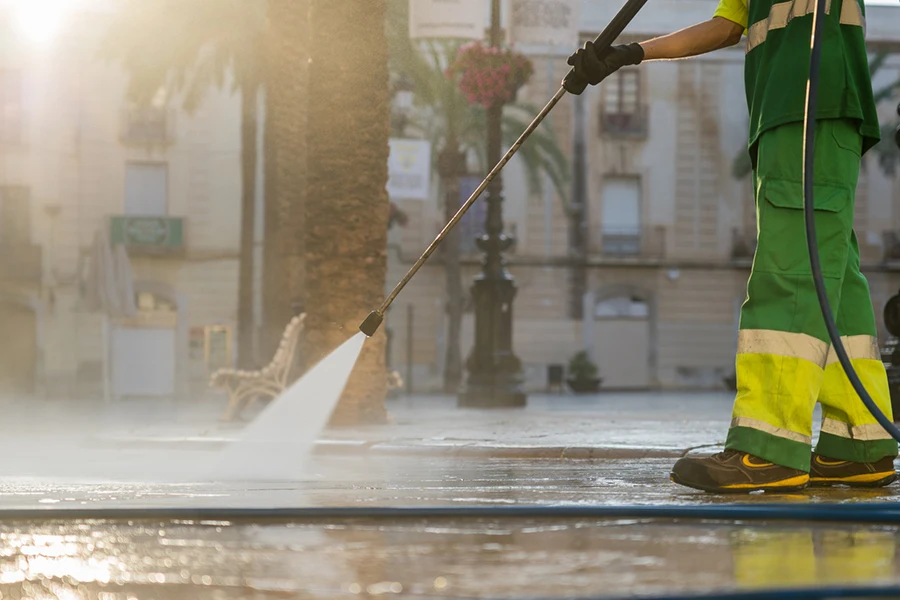
The operation of industrial pressure washers is based on a simple yet powerful principle: using high-pressure water to dislodge dirt and debris. The process starts with the motor or engine powering the water pump, which draws water from a reservoir or a direct water source. As the pump pressurizes the water, it is forced through a high-pressure hose towards the nozzle.
The nozzle is a critical component in this system, as it determines the shape and intensity of the water jet. Different types of nozzles are available for various cleaning tasks. For example, a narrow-angle nozzle produces a concentrated, high-pressure stream ideal for removing tough stains, while a wider-angle nozzle provides a gentler spray suitable for more delicate surfaces. Adjustable nozzles offer flexibility by allowing the user to change the spray pattern as needed.
Industrial pressure washers can operate with either cold or hot water. Cold water pressure washers are sufficient for most general cleaning tasks, such as removing mud, dust, and light stains. However, hot water pressure washers are more effective for cutting through grease, oil, and other stubborn residues. The heated water helps to break down these substances more efficiently, making the cleaning process faster and more thorough.
The ultimate effectiveness of an industrial pressure washer depends on several factors, including the water pressure (measured in PSI, or pounds per square inch), the water flow rate (measured in GPM, or gallons per minute), and the type of nozzle used. Higher PSI and GPM ratings generally indicate a more powerful machine capable of tackling tougher cleaning jobs. Understanding these specifications is essential for selecting the right pressure washer for your specific needs.
How to use an industrial pressure washer
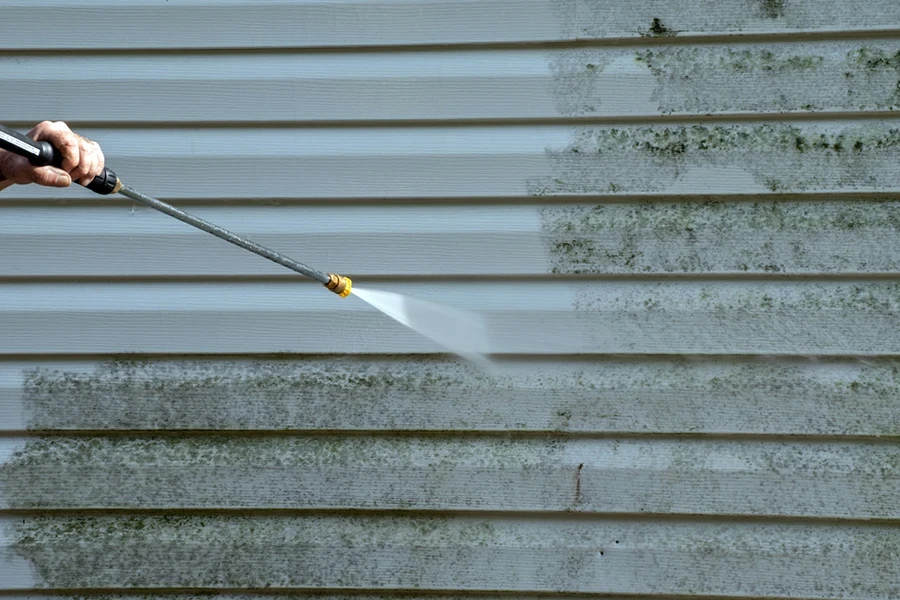
Using an industrial pressure washer involves several steps to ensure safety and effectiveness. Before starting, it’s important to read the manufacturer’s manual and familiarize yourself with the machine’s controls and safety features. Proper preparation and knowledge can prevent accidents and damage to both the equipment and the surfaces being cleaned.
First, set up the machine by connecting the water supply and attaching the appropriate nozzle for the task. Ensure all connections are secure to prevent leaks and pressure loss. If you’re using a hot water pressure washer, allow time for the water to heat up to the desired temperature. Wear protective gear, including gloves and safety goggles, to shield yourself from the high-pressure spray and any debris that might be dislodged.
When operating the pressure washer, hold the spray wand with both hands for better control and stability. Start with a low-pressure setting to test the spray pattern and gradually increase the pressure as needed. Keep the nozzle at a consistent distance from the surface being cleaned, typically between 6 to 12 inches. Moving the nozzle in a sweeping motion ensures even coverage and prevents damage to the surface.
It’s crucial to follow a systematic approach when cleaning large areas. Start at the top and work your way down, allowing the water to carry dirt and debris away. Avoid pointing the spray directly at electrical components, delicate materials, or people. After completing the task, turn off the machine, disconnect the water supply, and release any remaining pressure in the system. Regular maintenance, such as cleaning the filters and checking for wear and tear, will keep the pressure washer in optimal condition.
How much does an industrial pressure washer cost?
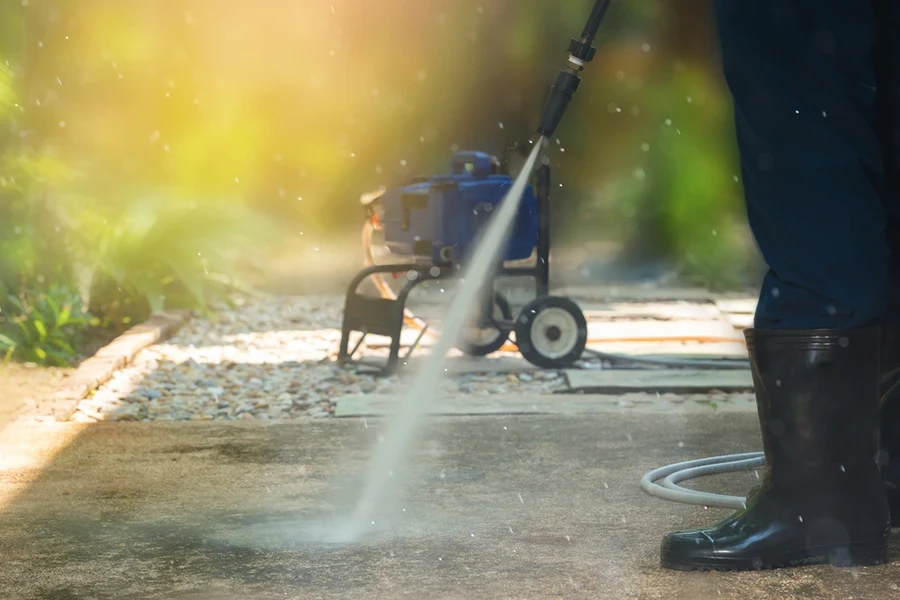
The cost of an industrial pressure washer varies widely based on factors such as power source, pressure rating, water flow rate, and additional features. Entry-level models suitable for light industrial use can start at around $500, while high-end machines designed for heavy-duty applications can exceed $5,000. Understanding the features and capabilities you need will help you make an informed decision within your budget.
Electric pressure washers are generally more affordable and cost-effective to operate, with prices ranging from $500 to $2,000. They are ideal for indoor use or situations where exhaust fumes and noise must be minimized. Gasoline and diesel-powered pressure washers, on the other hand, offer greater mobility and power, making them suitable for outdoor and remote applications. These models typically range from $1,000 to $5,000, depending on their specifications and brand.
Additional costs to consider include accessories and maintenance. Nozzles, hoses, and extension wands can enhance the versatility of your pressure washer but add to the overall expense. Regular maintenance, such as oil changes, filter replacements, and pump servicing, is essential to keep the machine running smoothly and prolong its lifespan. Investing in a high-quality pressure washer from a reputable brand can reduce long-term costs by minimizing the need for frequent repairs and replacements.
Top industrial pressure washers on the market
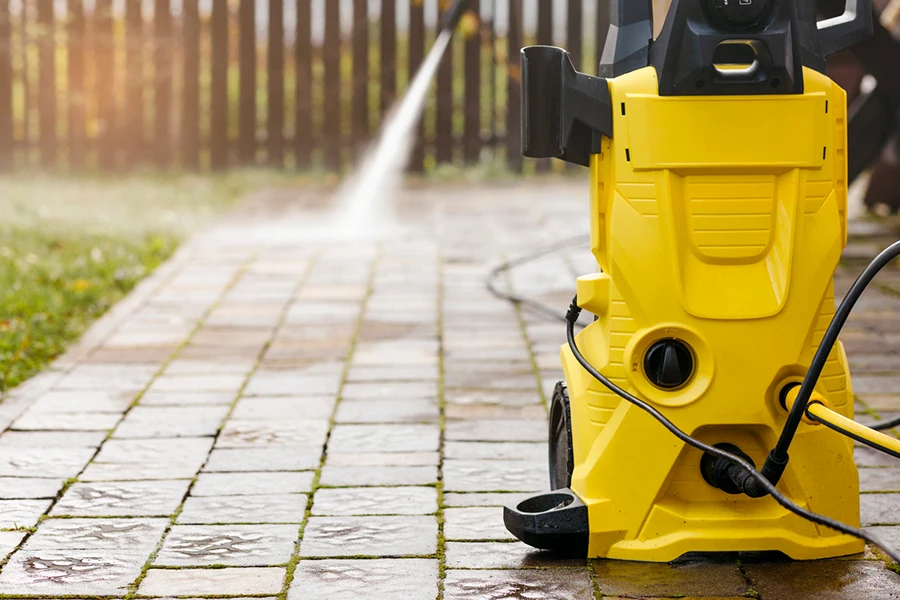
Choosing the best industrial pressure washer depends on your specific needs and budget. Here are some of the top models available, known for their reliability, performance, and value:
1. Kärcher HD 2.3/14 C Ed: This electric pressure washer is compact and versatile, ideal for light to medium-duty tasks. It features a direct-drive pump, adjustable pressure settings, and a durable construction that ensures longevity. With a PSI rating of 2,300 and a flow rate of 1.4 GPM, it offers a good balance of power and efficiency for various applications.
2. Simpson PowerShot PS4240: A gasoline-powered pressure washer designed for heavy-duty use, the Simpson PowerShot PS4240 delivers an impressive 4,200 PSI and 4.0 GPM. It is equipped with a commercial-grade Honda GX390 engine and a triplex plunger pump, providing exceptional performance and durability. This model is ideal for demanding cleaning tasks in construction, agriculture, and other industrial settings.
3. Mi-T-M HSP-3504-3MGH: For those requiring hot water capabilities, the Mi-T-M HSP-3504-3MGH is a top choice. This diesel-powered pressure washer offers 3,500 PSI and 4.0 GPM, with a diesel burner system that heats water up to 200°F. Its heavy-duty frame, adjustable thermostat, and robust design make it suitable for the toughest cleaning jobs, such as removing grease and oil from industrial equipment.
Conclusion:
Industrial pressure washers are the ultimate tools for efficient and effective cleaning in various industries. By understanding their mechanics, proper usage, and cost considerations, you can select the right machine for your needs. Investing in a high-quality industrial pressure washer will save time, labor, and resources, ultimately enhancing productivity and maintaining cleanliness in your operations.
